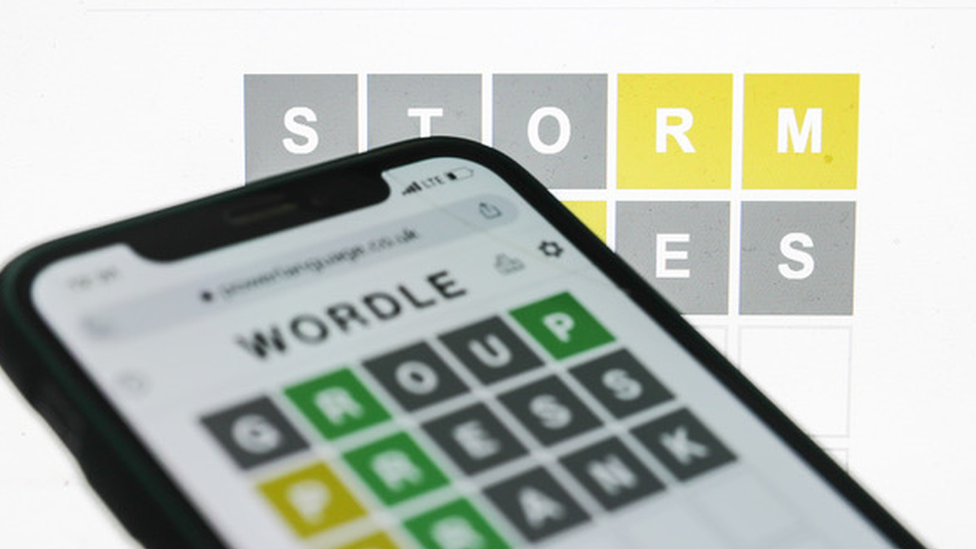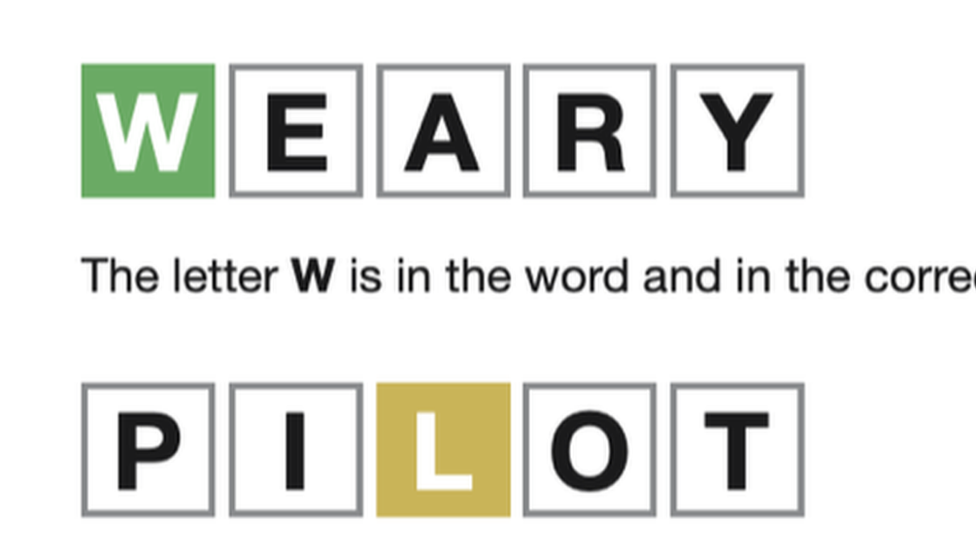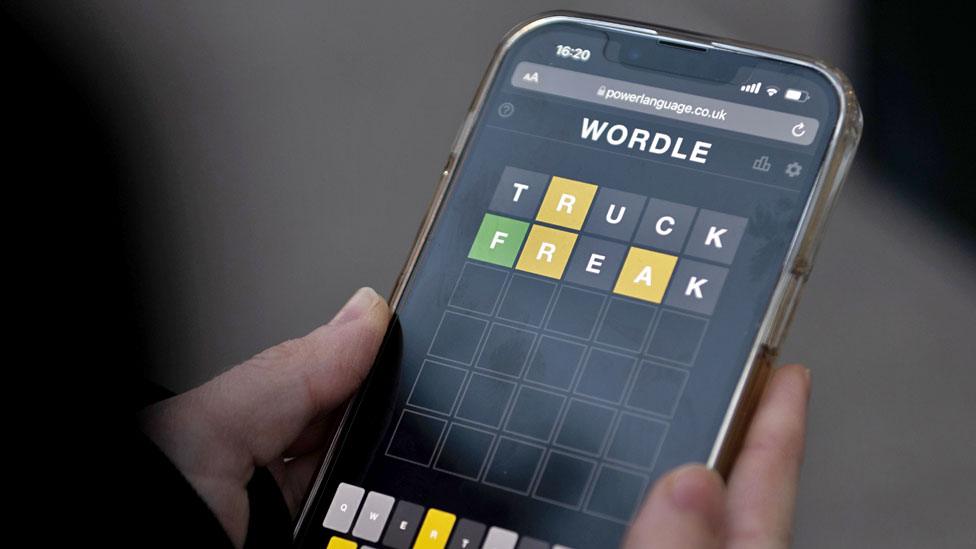Wordle code could be copied to play for seven years
- Published

Wordle went from a handful of users to millions in a matter of months
The code that powers the website of the viral puzzle game Wordle can be copied and saved to continue playing it for the next seven years, it has been revealed.
The finding comes amid concerns that the game's sale to the New York Times may mean it stops being free to play.
The code, written in Javascript, appears as plain text for those who know how to access it.
Some publications have even printed a step by step guide of how to do it.
"Effectively you can keep a version of the game as it exists today with enough data to keep you going for a long time," said Prof Alan Woodward, a computer scientist from University of Surrey.
But, he added: "As you have the words stored locally it might be tempting to cheat, and where's the fun in that?"
He added it would not be "too difficult" to split the question grid from the answers.
"You'd need to hold the data in a file that was inaccessible other than to the game. In essence split the data file of words from the functionality you see when playing."
That may sound like a lot of effort for a daily word game that challenges users to find a five-letter word in six guesses, with clues along the way.
But having risen from a handful of players to millions in just a few months, some may be willing to try.`
Watch: Countdown star Susie Dent says she hopes the game will remain free
The creator Josh Wardle recently sold his game to the New York Times for a seven-figure sum. He had originally said he did not want to make any money from the game he created as a distraction for himself and his partner during lockdown.
And copying the code may carry legal risk.
Nick Allan, legal director at law firm Lewis Silkin, told the BBC: "The particular expression of the software code underlying a game like Wordle will be protected as a literary copyright work under UK copyright law," he said.
"It is not possible to waive UK copyright, and the copyright provided on the Wordle website is not obviously licensed to the general public on a free, perpetual open-source basis.
"Unless Mr Wardle has provided this type of general licence to the public, he or the New York Times are likely to still retain the right to enforce the copyright as they see fit."
That means that anyone replicating it or creating a clone game could be liable for copyright infringement, at least in the UK courts.
It might be possible, added Mr Allan, to create a game using different lines of code that achieve the same result.
"Either way this is a complex area, fraught with legal risk for anyone thinking of using this code to release their own Wordle."
And it is likely that the website will be completely re-engineered when the New York Times takes charge.
Related topics
- Published5 January 2022

- Published2 February 2022
